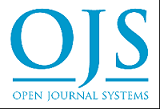Nurses' perspectives on culturally sensitive maternity care in hospital settings
DOI:
https://doi.org/10.33024/minh.v7i9.822Keywords:
Childbirth, Cultural Sensitivity, Hospital Care, Maternity Care, Nursing PerspectiveAbstract
Background: Differences in cultural backgrounds between healthcare workers and patients can lead to misunderstandings and cultural shock for patients. Nurses must navigate these situations to provide services that prioritize attentiveness, mutual respect, and cultural sensitivity, ultimately improving patients' health outcomes. Nurses play a critical role in delivering appropriate care, particularly when cultural practices may pose risks to maternal health during childbirth. Therefore, understanding the cultural perspective is essential for nurses in providing effective maternity care.
Purpose: To explore nurses' perspectives on providing culturally sensitive maternity care to mothers during childbirth within the hospital setting.
Method: A qualitative research design with a descriptive phenomenological approach was employed. Twelve informants participated in the study to ensure data saturation. Semi-structured interviews were conducted through face-to-face sessions, Zoom meetings, and audio recordings. Data were analyzed using the Colaizzi method.
Results: Three key themes emerged from the analysis: (1) Culturally sensitive assessments were primarily focused on spiritual and social aspects; (2) Implementation of cultural sensitivity was achieved through interprofessional collaboration, education, and direct care; (3) Improvements in culturally sensitive care were identified as necessary, including policy development, additional human resources, and health education guidelines.
Conclusion: Nurses' perspectives on culturally sensitive maternity care indicate a lack of a comprehensive cultural approach in current practices. Enhancing maternity nurses' competencies through targeted training on cultural assessments is essential to support high-quality maternity care that respects and integrates cultural considerations.
References
Alhazmi, A. A., & Kaufmann, A. (2022). Phenomenological qualitative methods applied to the analysis of cross-cultural experience in novel educational social contexts. Frontiers in Psychology, 13, 785134.
Amalia, L., Lisna, A. F., Putri, S. T., Sumartini, S., & Mega, N. (2020). The contribution of pregnant women characteristics to pregnancy exercise perception. In 4th International Conference on Sport Science, Health, and Physical Education (ICSSHPE 2019) (pp. 166-170). Atlantis Press.
Astri, H., & Alhadar, F. (2018). Rorano Ramuan Percepat Proses Persalinan Pada Etnik Ternate. Jurnal Riset Kesehatan, 7(1), 25-31.
Beyer, C. (2010). Edmund husserl. In The Routledge Companion to nineteenth Century Philosophy (pp. 887-909). Routledge.
Červený, M., Siaki, L., Prosen, M., & Nagórska, M. (2022). Challenges experienced by nurses caring for patients from different cultures: a scoping review of the literature, 2010–2020. Central European Journal of Nursing and Midwifery, 13(4), 783-792.
De Souza, R., Butt, D., Jethani, S., & Marmo, C. (2021). Participatory research methods for investigating digital health literacy. Conjunctions, 8(1), 1-17.
Enestvedt, R. C., Clark, K. M., Freborg, K., Miller, J. P., Leuning, C. J., Schuhmacher, D. K., & Loushin, S. L. (2018). Caring in the margins: A scholarship of accompaniment for advanced transcultural nursing practice. Advances in Nursing Science, 41(3), 230-242.
Horrigan, K., M., Millar, M., & Dowling, M. (2016). Understanding the key tenets of Heidegger’s philosophy for interpretive phenomenological research. International journal of qualitative methods, 15(1), 1609406916680634.
Ito, M., & Sharts, H. N. C. (2012). Japanese women's experience of childbirth in the United States. Health care for women International, 23(6-7), 666-677.
Juhannis, H., Satrianegara, M. F., Amansyah, M., & Syarifuddin, N. (2021). Community beliefs toward causes of illness: cross cultural studies in Tolotang and Ammatoa Ethnics in Indonesia. Gaceta Sanitaria, 35, S19-S22.
Leininger, M. (2012). Self-care ideology and cultural incongruities: Some critical issues. Journal of Transcultural Nursing, 4(1), 2-4.
Lumbantobing, V., Susilaningsih, F. S., Rasyiddin, G., Kurniawan, T., & Pratiwi, A. (2018). Pengetahuan cultural competence pada mahasiswa program profesi Ners di Bandung. Journal of Nursing Care and Biomoleculer, 3(2), 114-120.
Malabat, C. G., & Ruiz, F. B. (2019). Act Local but think global: transcultural nursing competencies and experiences of Foreign Students from selected higher Education Institutions in the Philippines. In Abstract Proceedings International Scholars Conference (Vol. 7, No. 1, pp. 580-599).
McCall, W. T. (2020). Caring for patients from a school shooting: A qualitative case series in emergency nursing. Journal of emergency nursing, 46(5), 712-721.
Ministry of Health of the Republic of Indonesia. (2022). Profil Kesehatan Indonesia Tahun 2021. Kementerian Kesehatan Republik Indonesia. Retrived From: https://repository.kemkes.go.id/book/828
Ngotie, T. K., Kaura, D. K., & Mash, B. (2022). Awareness of cultural practices by skilled birth attendants during pregnancy and birth in Kenya: An interpretive phenomenological study. International Journal of Africa Nursing Sciences, 16, 100394.
Nursanti, I. (2023). Analisa Teori Transcultural Nursing Madeleine Leininger. Nusantara Hasana Journal, 3(8), 192-202.
Nuuyoma, V., Muvumwaeni, S., & Chihururu, L. (2024). Transcultural nursing: a qualitative analysis of nursing students’ experiences in a multicultural context in North-Eastern Namibia. BMC nursing, 23(1), 123.
Ottani, P. A. (2012). Embracing Global Similarities: A Framework for Cross‐Cultural Obstetric Care. Journal of Obstetric, Gynecologic, & Neonatal Nursing, 31(1), 33-38.
Pham, T. T. L., Berecki-Gisolf, J., Clapperton, A., O’Brien, K. S., Liu, S., & Gibson, K. (2021). Definitions of culturally and linguistically diverse (CALD): a literature review of epidemiological research in Australia. International journal of environmental research and public health, 18(2), 737.
Wulandari, R. A., Asmaningrum, N., & Ardiana, A. (2022). Transcultural Communication Strategies in Nursing with Multicultural Clients in Hospital Settings: A Systematic Literature Review. Jurnal Pendidikan Keperawatan Indonesia, 8(2), 91–106.
Yanti, D. M. (2018). Hubungan Asupan Protein Dengan Penyembuhan Luka Pada Pasien Post OP Sectio Caesarea (SC) di Rumah Sakit Umum Daerah Pringsewu Lampung Tahun 2016. Jurnal Asuhan Ibu dan Anak, 3(2), 1-9.
Downloads
Published
How to Cite
Issue
Section
License
Copyright (c) 2024 Malahayati International Journal of Nursing and Health Science

This work is licensed under a Creative Commons Attribution-NonCommercial 4.0 International License.









